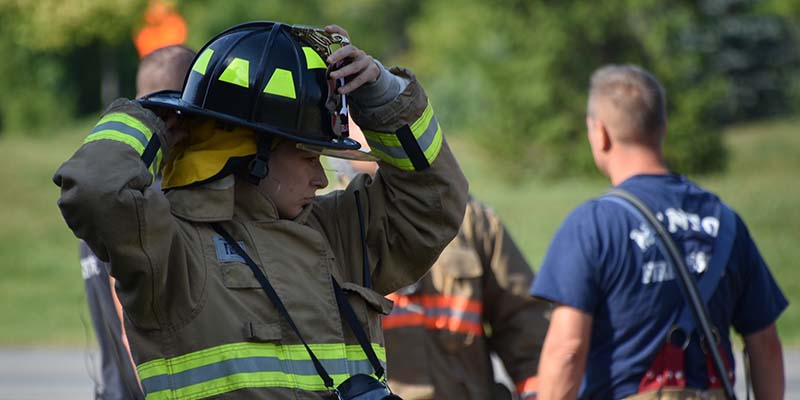
Fire Prevention Week is October 3rd through 9th and the Mentor Fire Department wants you to “Learn the Sounds of Fire Safety!” Mentor is joining fire departments across the country for the National Fire Protection Association campaign to educate everyone about the different sounds the smoke and carbon monoxide alarms make. Knowing what to do when an alarm sounds will keep you and your family safe. When an alarm makes noises – a beeping sound or a chirping sound – you must take action.
- When a smoke alarm or carbon monoxide (CO) alarm sounds, respond immediately by exiting the home as quickly as possible.
- If your alarm begins to chirp, it may mean that the batteries are running low and need to be replaced. If the alarm continues to chirp after the batteries are replaced, or the alarm is more than 10 years old, it is time to replace the alarm. (Leaving the batteries out or otherwise disabling a chirping alarm is not an option. Do not leave yourself unprotected).
- Test all smoke and CO alarms monthly. Press the test button to make sure the alarm is working.
- If there is someone in your household who is deaf or hard of hearing, install bed shaker and strobe light alarms that will alert that person to fire.
- Know the difference between the sound of a smoke alarm and a carbon monoxide alarm – three beeps for smoke alarms, four beeps for carbon monoxide alarms.
In a fire, mere seconds can mean the difference between a safe escape and a tragedy. Fire safety education isn’t just for school children. Teenagers, adults, and the elderly are also at risk in fires, making it important for every member of the community to understand household fire safety tools and to take action when they sound.
If you have questions about smoke or carbon dioxide detectors, call the Mentor Fire Department at 440-974-5769.
